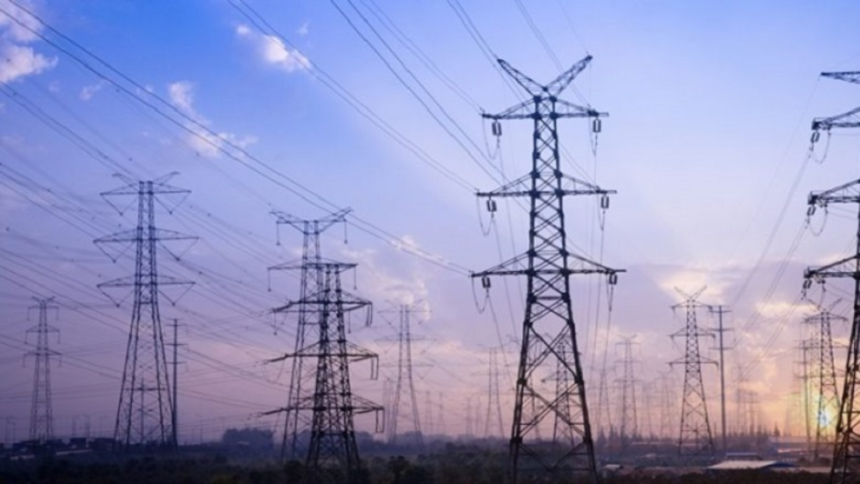A significant number of large European companies are urging the EU for greater clarity on climate protection and faster implementation of economic objectives. In an open letter at the end of May, approximately 150 companies called for a reduction in greenhouse gas emissions in the European Union by at least 90% by 2040.
The signatories argued that a strong climate target and the decarbonization of the economy would improve sustainability, energy security, and competitiveness.
Corporate Leaders Advocating for Ambitious Targets
The signatories are members of the Corporate Leaders Groups, convened by the University of Cambridge Institute for Sustainability Leadership. The letter was addressed to the European Commission, representatives of the European Parliament, and the heads of EU states and governments. Among the signatories are major corporations, including SAP, the Otto Group, and Allianz.
To date, the EU has set a target to reduce CO2 emissions by 55% by 2030 compared to 1990 levels and to achieve climate neutrality by 2050. A binding interim target for 2040 does not yet exist.
Global Competition and EU Hesitation
Clear interim targets could offer companies more certainty. This also signals whether Europe will continue on its climate path. There are now doubts about this, as the European Commission has recently reopened several areas for discussion, aiming to simplify processes.
“If this will remain so or if previously agreed regulations will be softened is currently ‘unpredictable’,” says Manon Dufour, Director General of the Brussels office of EG3, an international organization specializing in international climate diplomacy. This would make investors hesitate, she notes.
For Dufour, it is clear: behind the call for greater climate ambition lies the hope that this will result in a competitive advantage for EU companies. Given the massive green investments in China, “the technological transition in Europe is no longer an exclusively European project,” but should be viewed in the context of global competition.
“In some sectors, Europe might find it harder to maintain its competitive edge. However, in others, Europe is very well positioned,” Dufour says. Europe is a leader in all areas related to grid or cable technologies, as well as in some areas of CCS technology, which captures and stores CO2 from industrial plants. “Europe can still benefit here,” Dufour believes.
Policy Effectiveness and Corporate Interest
It is no coincidence that more and more companies are calling on the EU to act more decisively. Since the EU adopted the Green Deal in 2019, hundreds of billions of euros have been invested in green technology and industry. Numerous regulations for business sustainability have also been approved. Since then, there has been a profound shift in companies’ attitudes toward climate policy across Europe.
An analysis by the UK-based non-profit organization InfluenceMap concludes that this policy is showing results. Today, 23% of companies in the EU implement strategies that, according to the analysis, help achieve climate goals. In 2019, this figure was only 3%. At the same time, the proportion of companies classified as “climate unacceptable” fell from 34% to 14%.
The goal of a 90% emissions reduction by 2040, requested by the signatories of the open letter, “would give us a clear path to expand our actions and investments in transitioning to more sustainable business models and rapidly reducing our emissions.” Ultimately, the signatories assert that climate risk is an economic and financial risk.
According to the Deloitte Sustainability Report, almost all surveyed managers in Germany (97%) stated as early as 2022 that their company was negatively affected by climate change. 50% said their business is directly linked to climate change.
Heavy Industry and Economic Costs of Delay
Despite this, the German Federal Environment Agency found in a 2021 study that only half of German DAX companies report on the economic risks of the climate crisis. Deloitte’s latest 2024 survey shows that most of the over 2,000 executives surveyed from 27 countries prioritize sustainability projects in their decision-making. 85% of respondents said they are increasing their investments in this area, compared to 75% last year.
However, those who call for less ambitious climate protection by 2040 are also vocal in Brussels. This includes, in particular, companies in the European heavy industry, the German chemical industry, the Confederation of German Industry, the European cement industry, and oil and gas concerns.
A delayed transformation of the economy will not only impact businesses but will also cost taxpayers vast amounts of money in damages caused by the climate crisis. A study by scientists at the Potsdam Institute for Climate Impact Research (PIK) shows that even if greenhouse gas emissions were drastically reduced from now on, global per capita income would fall by 19% by 2050. This equates to about $38 trillion per year, which is about six times the estimated cost of climate action.
Decoupling Economic Growth from CO2 Emissions
Meanwhile, economic growth is decoupling from CO2 emissions worldwide. From 2015 to 2022, global gross domestic product (GDP) grew by 22%, while emissions increased by only 7%. More than 40 countries have increased their GDP while simultaneously reducing emissions, according to a 2025 study by the OECD and the United Nations. This trend has gained momentum since the 1990s.
Investments in clean and sustainable energy are now twice as high as those in fossil fuels, offering affordable climate solutions, innovation, jobs, and economic growth, say the letter’s signatories. Clean energy markets have grown rapidly, driven initially by policies and then by market demand. Today, the letter states, 87% of the global economy has net-zero targets when it comes to CO2 emissions. At the same time, governments, regions, cities, and companies have taken steps to limit greenhouse gas emissions.
The momentum for climate protection is currently weakening. “Unclear policies risk delaying private investments and reducing GDP by 0.75% as early as 2030,” the authors state. Last year, the European Commission recommended reducing greenhouse gas emissions by at least 90% compared to 1990 levels. The relevant legislative proposal is expected to be published before the summer break. However, it still needs to be negotiated by EU member states and the European Parliament. Some members of the European Parliament have expressed concern that the proposed target might be too ambitious. A growing number of economic representatives, however, clearly see things differently.







